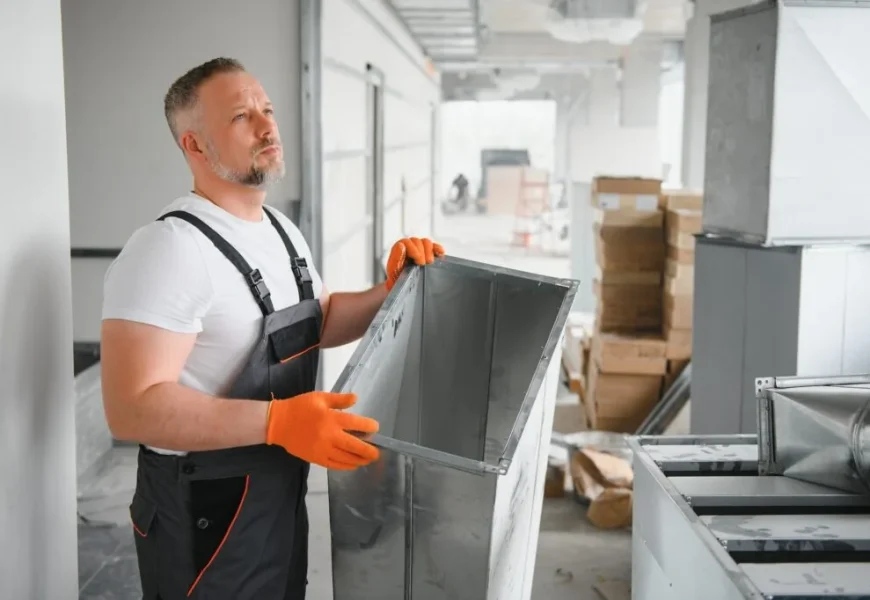A trash compactor is a handy appliance that helps reduce the volume of waste in your home by compacting trash into smaller, more manageable sizes. But what happens when your trash compactor stops working? It can be frustrating, especially since it can disrupt your daily routine. In this article, we’ll explore the common reasons why a trash compactor might stop working and what you can do to fix it, including some tips for trash compactor repair.
Understanding How a Trash Compactor Works
Before we dive into the causes, let’s briefly go over how a trash compactor works. The purpose of a trash compactor is to compress trash into a smaller form, making it easier to dispose of. It uses a motorized ram to press down on the waste, which is then stored in a compacted form in a bin. Most models also feature a safety switch to prevent the compactor from operating when the door is open. Knowing how your appliance works will help you troubleshoot issues more effectively.
Power Supply Problems
The most basic reason your trash compactor may stop working is a lack of power. A simple issue like a blown fuse, a tripped circuit breaker, or a disconnected power cord can prevent the appliance from turning on. Start by checking if the trash compactor is plugged in properly. If it’s plugged in but not running, inspect the power source. Look for any visible signs of damage to the plug or cord, and make sure the circuit breaker hasn’t been tripped. If you’re unsure, try plugging the compactor into another outlet or using a multimeter to check for electrical current.
Jammed Mechanism
A jammed mechanism is another common reason why a trash compactor might stop working. Trash compactors have a ram that pushes down on the waste. If something gets stuck or jammed in the mechanism, the motor may stop working. Take a look inside the trash compactor. Sometimes, large items like metal cans, hard plastics, or even food packaging can get caught in the compacting area. Turn off the compactor and try to manually move the ram. If it’s stuck, you may need to carefully remove any debris or blockages before you can continue using the appliance.
Faulty Motor
If the motor is malfunctioning, your trash compactor won’t be able to do its job. Motors can wear out over time, especially if the appliance has been heavily used. If the compactor motor is not running despite power being supplied, it might need to be repaired or replaced. Testing the motor requires a basic understanding of electrical systems. If you suspect a motor problem, you can check the motor’s capacitor or contact a professional repair service to assess whether a replacement is needed.
Malfunctioning Switches
Trash compactors have multiple switches, such as the start switch, the door safety switch, and the overheat switch. If any of these switches fail, the compactor will not operate. The safety switch prevents the compactor from running when the door is open, and the start switch ensures the motor begins operating when the compactor is turned on. If you suspect the switches are malfunctioning, inspect them for any visible signs of wear or damage. If the switches are faulty, they may need to be replaced.
Clogged Hydraulic System
Some trash compactors use a hydraulic system to help with the compression process. If the hydraulic system gets clogged or the fluid levels are low, the compactor may stop working properly. This issue can often be more complicated to fix since it requires checking the system’s components, like the pump and lines. If your compactor operates with a hydraulic system, it’s important to ensure that the fluid is topped up. If you notice leaks or a decrease in performance, it might be a good idea to have the system checked by a technician.
Overloaded Compactor
Sometimes, the issue isn’t a mechanical fault but an overload of waste. If you overload the trash compactor, it can struggle to function correctly. Too much waste can put excessive strain on the motor and cause the mechanism to stop moving properly. Avoid overloading the trash compactor and only add the appropriate amount of waste at a time. If you’re unsure about how much waste your compactor can handle, check the user manual for recommendations.
Blocked Ram or Guide Track
The ram inside the compactor moves up and down to compress the waste. If the ram or guide track is blocked or misaligned, it can prevent the compactor from operating. Dust, food particles, or even debris from the trash itself can cause the tracks to become blocked. Check the ram and guide track for any debris or objects that might be obstructing the movement. If you find anything, carefully remove it and check to see if the compactor starts working again.
Worn-Out Drive Belt
Many trash compactors use a drive belt to transfer power from the motor to the ram. If the belt is worn out or broken, the compactor will not function. Over time, the drive belt can stretch or break due to constant use. To check the drive belt, you’ll need to remove the cover of the compactor. Inspect the belt for signs of wear, such as fraying, cracking, or breaking. If the belt is damaged, it will need to be replaced.
Overheated Motor
Like any electrical appliance, a trash compactor’s motor can overheat if it’s used for long periods or overloaded. Many compactors have an automatic shut-off mechanism that kicks in when the motor gets too hot. If your compactor stops working and the motor seems to be overheating, it’s important to turn off the machine and let it cool down. Make sure the vent areas are clear of debris and ensure that the motor is properly lubricated for optimal performance.
Age of the Appliance
Sometimes, the reason your trash compactor stops working is simply because it’s old. Like all appliances, trash compactors have a lifespan, and components will wear out over time. If your compactor is several years old and you’ve tried everything else, it may be time to replace the unit. Before replacing the compactor, it’s a good idea to consult a professional repair technician to see if a simple fix might extend its life.
Conclusion
There are a variety of reasons why a trash compactor might stop working. Whether it’s a simple issue like a power supply problem or something more complex like a faulty motor or clogged hydraulic system, identifying the cause is the first step toward fixing it. If your trash compactor is still under warranty, don’t hesitate to contact the manufacturer or a professional technician for help. For older models, some repairs may not be worth the cost, and it might be more practical to replace the appliance.









